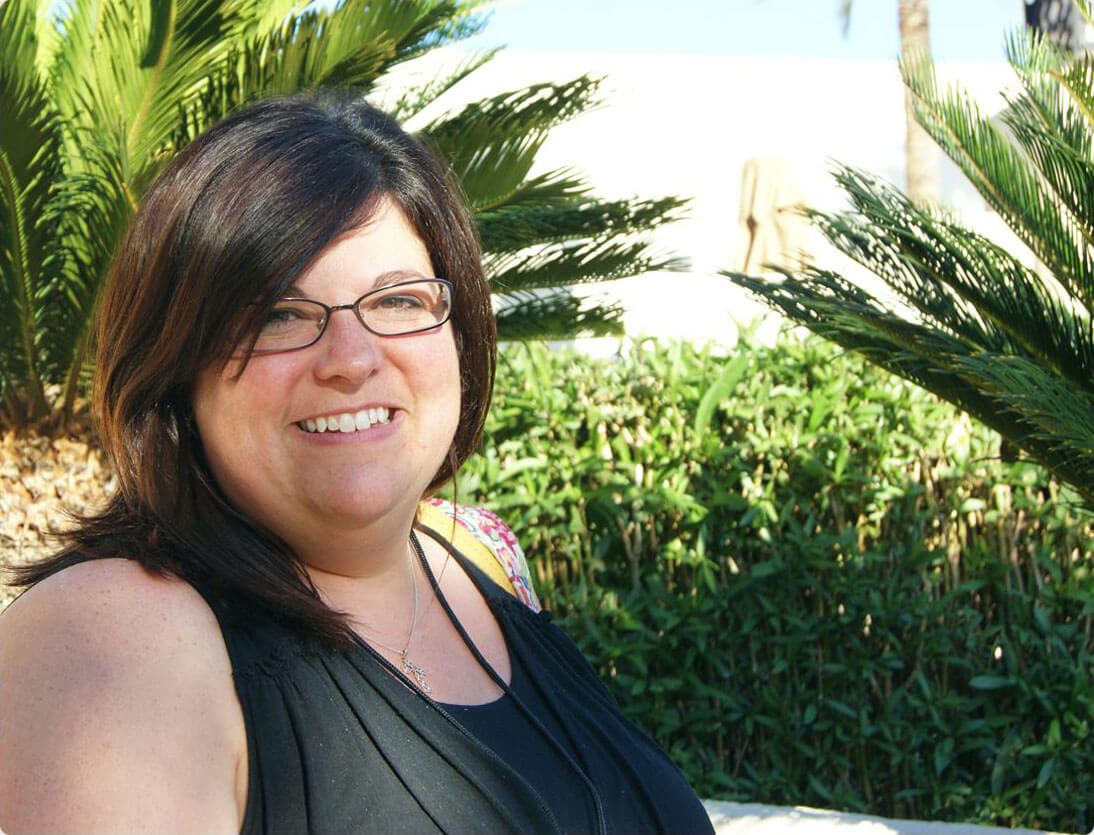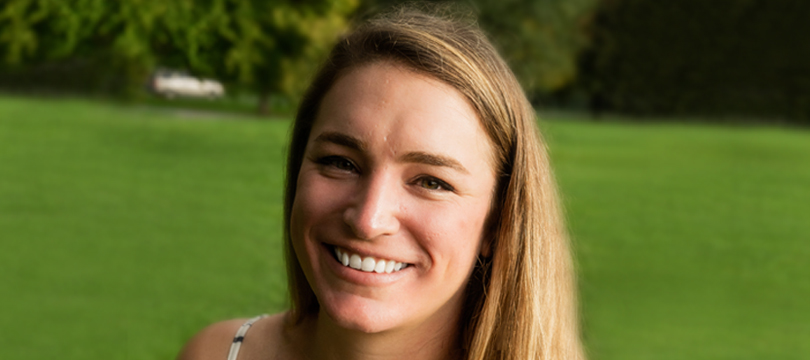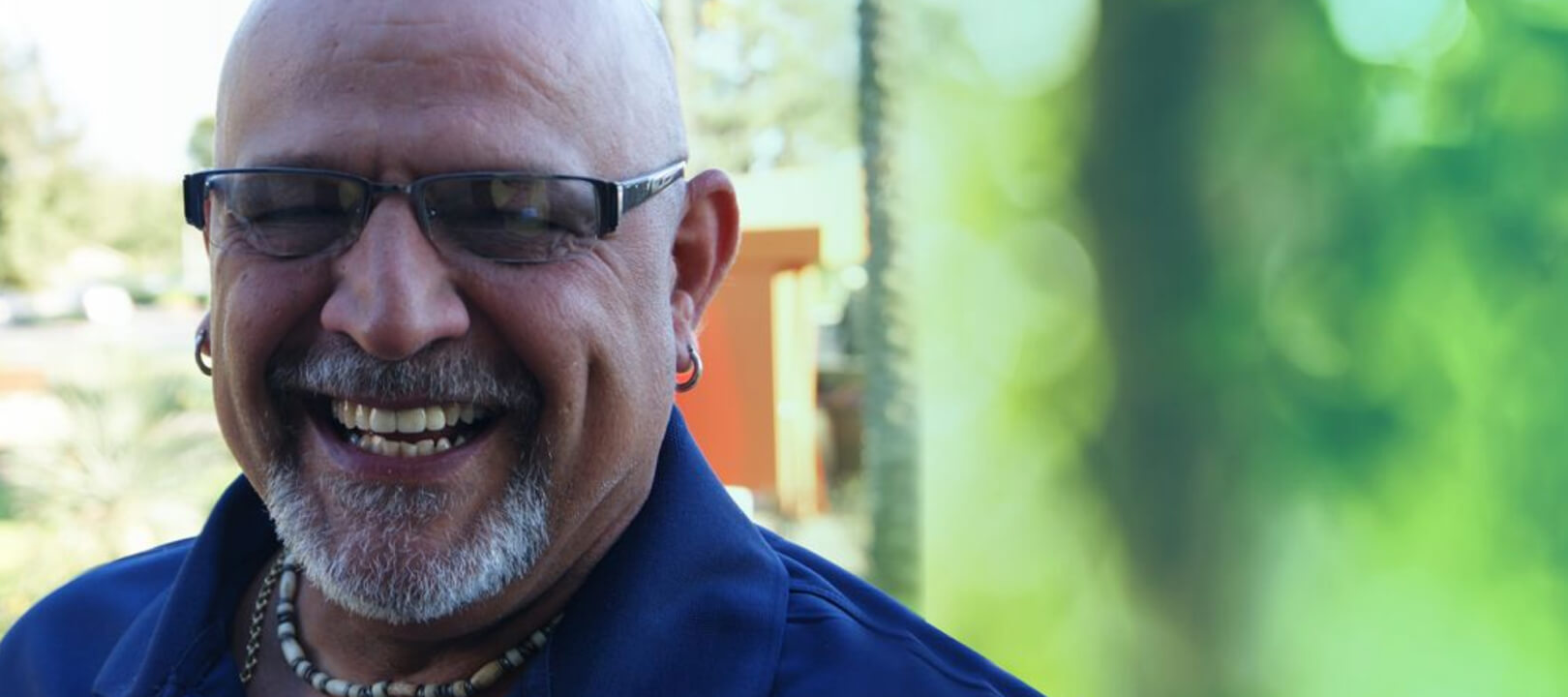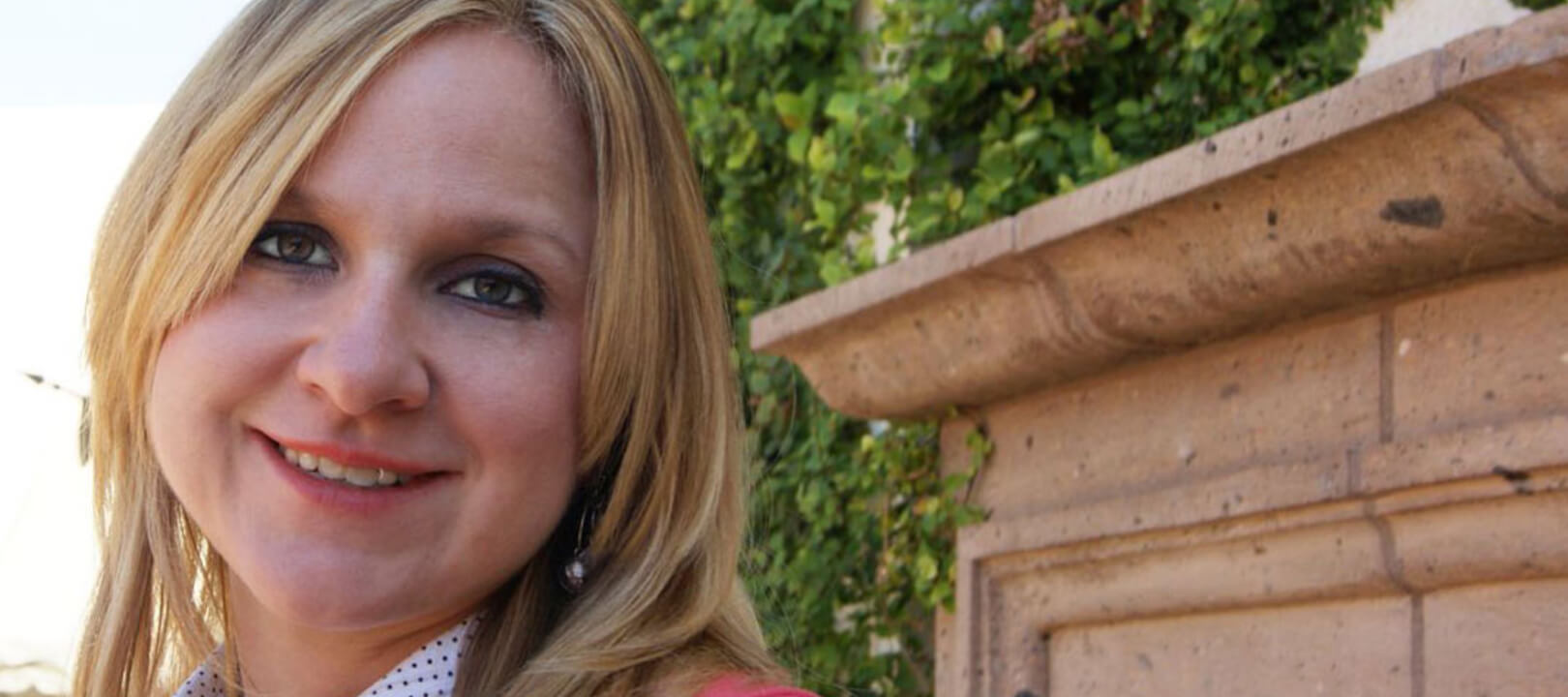Becky and Elizabeth’s story
A surprising diagnosis
Elizabeth is the first person in the family to be diagnosed with hemophilia. When she was 3 months old, she developed a bruise on her chest. When Becky took her to the physician to have it checked, he did a finger-prick blood test. The bleeding did not stop, and after further analysis, the physician noted that Elizabeth’s factor IX (FIX) level was very low. Since there was little information at the time about girls being diagnosed with hemophilia, Becky and her husband Jim had difficulty accepting this diagnosis and found it difficult to convince others that Elizabeth did indeed have hemophilia.
It took time for people to focus
on the diagnosis and not on the gender.
“When we began to go to an HTC, we found that the education about the genetics and the cause of Elizabeth’s hemophilia helped us, and we started to get involved,” Becky says. “The support from the HTC was more valuable than anything in our acceptance of the diagnosis. Before that, we felt like we were really alone because everyone and everything pertained to boys. It took time for people to focus on the diagnosis and not on the gender.”
The road to acceptance
From Elizabeth’s point of view, she had a hard time accepting the fact that she had hemophilia even though she was a girl. “There was a stage when I was so angry. I am over that now, and in order to do what I want to do, I just accept it and move on. I don’t talk about it much at all.”
Elizabeth has been learning to self-infuse and is doing well. She credits her family with providing great support. She feels confident that she’ll be able to self-infuse when she gets older, especially when she goes to college. She’s already preparing for her future by considering potential jobs and insurance plans. Elizabeth has plans like any other teen—as of now, she’s considering becoming a teacher. She says, “I’ll progress normally like anyone else. Hemophilia doesn’t define me; it’s only a part of who I am.”
Hemophilia doesn’t define me;
it’s only a part of who I am.
Becky, meanwhile, has become a strong advocate for all women who are symptomatic carriers of hemophilia. She feels that, over the past 14 years, the educational information for women with bleeding disorders has increased quite a bit. She has become very proactive in her efforts to build awareness with as many women as she can, telling them, “If you have bleeding issues, get your levels checked because there might be a reason for this.”
Becky is vocal about the struggle that women who are symptomatic carriers go through when it comes to diagnosis and treatment. “The more women I talk to who are symptomatic carriers, the more I hear that they just want to be labeled as having hemophilia and they don’t get access to factor like they should. It’s still a struggle for a lot of women out there,” she says.
I think women with bleeding disorders have come to the
forefront more, and awareness is continuing to grow.
Due to the struggles often faced by women with bleeding disorders, she feels that Elizabeth was fortunate to be diagnosed with severe hemophilia. “So many of these women who are mild to moderate don’t get the treatment. So, for Elizabeth to be able to have factor in her refrigerator at her disposal anytime she needs it, hemophilia really isn’t as big of an obstacle as it is for some of these other women.”
Becky believes that, little by little, awareness will continue to build that hemophilia is not necessarily gender specific, and she remains hopeful about the future of women in the hemophilia community. “I think women with bleeding disorders have come to the forefront more, and awareness is continuing to grow.”








